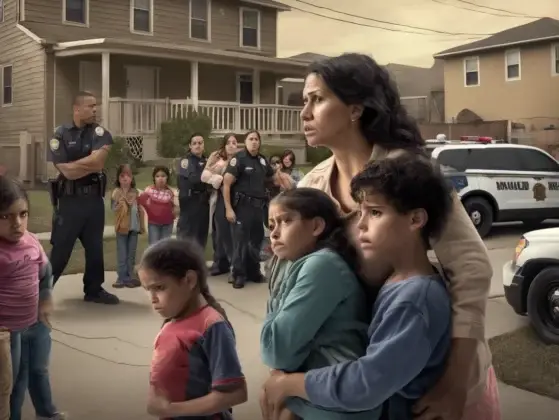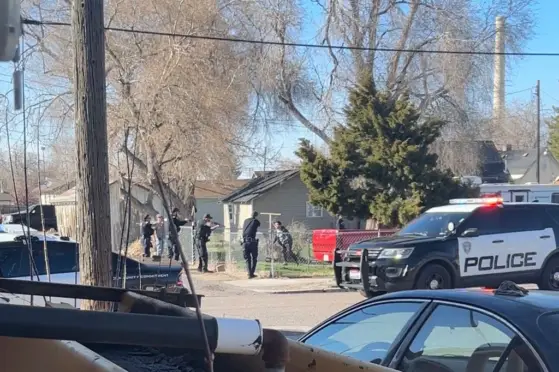The THC That “Gets You High” IS Medical Marijuana
It took four years to get eight medical marijuana states. The seven voter initiatives in 1996 (CA), 1998 (OR, WA, AK), 1999 (ME) and 2000 (CO, NV) plus the Hawaii legislature in 2000 brought us eight states where sick and disabled people became protected from criminal prosecution for their medical use of whole plant cannabis.
It’s taken only two months to get eight cannabidiol oil (CBD) states. Dr. Sanjay Gupta’s “Weed” documentary on August 11, 2013, exposed the nation to the miraculous power of CBD to nearly cure childhood epilepsy. Seven months, ten days, and thousands of sick kids’ parents’ Facebook posts later on March 21, 2014, the governor of Utah, of all the unlikely places, signed the first law in the nation to protect children sick with epilepsy from criminal prosecution for their medical use of one cannabis constituent – cannabidiol.
Why such a snail’s pace to legalize whole plant medical marijuana, usually requiring either a citizen ballot initiative or compromises at the legislature that leave us since 2010 with no home grow, restrictive condition lists, and now, bans on smoking medical marijuana (Minnesota)? Why such a cheetah’s pace to legalize cannabidiol, requiring no citizen initiatives and speeding through legislatures, often unanimously?
Because medical marijuana gets you high.
It’s the first sound bite uttered by any sponsor of a CBD-only bill: “We’re not talking about medical marijuana; this is an extract of cannabis that doesn’t get you high.” I’ve reported at least one legislator and many supporters saying something similar as CBD-only bills have passed in Utah, Kentucky, Alabama, Wisconsin, Mississippi, Iowa, Missouri, and Florida through March and April into May.
Recently, the Florida CBD bill was amended from just allowing epileptics to use it to allowing people with most seizure and spasticity disorders and cancer to use it. That’s a nice gesture that may help some more patients, but most multiple sclerosis patients I know need the THC in whole plant cannabis to moderate the neuropathic pain. Worse, the bill’s sponsor, Rep. Matt Gaetz, knows the THC is medicinal and acknowledged that cancer patients facing extreme nausea from chemotherapy won’t benefit from CBD-only oil. Gaetz explained, “We have to understand the very difficult challenge of creating a unique Florida medical-marijuana paradigm,” so that his state doesn’t turn into another California or Colorado.
What a tragic absurdy! Florida legislators are so afraid of the “high” from THC they’ll expand their CBD-only bill to cover things that only THC or THC with CBD can help. You might as well throw heebie jeebies, girl cooties, rockin’ pneumonia, and the boogie woogie flu in the bill, Rep. Gaetz.
Years ago as medical marijuana was beginning, advocates fought the “high” from marijuana from the start. “It’s not about getting high,” they’d explain, “it’s about saving lives.” They’d inadvertently demonize the “high” from THC with slogans like “We’re Patients, Not Criminals” and “Health Before Happy Hour”. Some patients even to this day will tell me when they use medical marijuana, they don’t get high.
Sure they don’t. Now, I understand all about tolerance and I know that a patient consuming cannabis all day for years will not be reduced to a giggling mass of munchies like a frat boy on his first joint. But I also know that patients don’t have some sort of special brain that doesn’t have endocannabinoid receptors and that healthy people who consume cannabis all day for years can build up the very same tolerance. THC affects brains and causes a “high”, whether you’re sick or healthy.
So it is time now for medical marijuana advocates to stop demonizing the “high” and those who use cannabis for that sole purpose. It’s not as if other legit medications don’t cause a “high”, from the opioids, benzodiazepines, and selective serotonin reuptake inhibitors you get at the pharmacy for your pain and depression to the dextromethorphan, pseudoephedrine, and antihistamine you can get at the grocery for your cold and flu symptoms.
There was never a reason to run from the “high” of THC in defending medical marijuana usage since medical pill usage usually gets you much higher. Framed correctly, the “high” from THC can be seen as a harm reduction from the “zombification” that occurs from the medications cannabis can replace. How hard is it to say, “Gee, a cancer patient who’s been puking for an hour, an AIDS patient so malnourished he looks like an Auschwitz survivor, and a multiple sclerosis patient wracked by hours of hot needling pain might get a little ‘high’? And you think that’s a bad side effect?”
Of course, that doesn’t fit well on a t-shirt or protest sign like “We’re Patients, Not Criminals”.
If you want medical THC and you want it in whole plant form, at this point you’re going to have to fight for legalization. State legislatures are going to keep passing CBD-only bills or severely restricted medical marijuana bills in order to combat people seeking a “high”. With much of the public the politicians will have provided themselves cover on the medical marijuana issue (see: Pennsylvania Gov. Tom Corbett “changes his mind” on medical marijuana). The few remaining states with ballot initiative power that haven’t passed medical marijuana yet are strongly conservative and may balk at whole plant medical marijuana initiatives (see: South Dakota, 2006 & 2010) and will never consider medical marijuana legislation (see: Idaho’s Senate declaring marijuana shall always be illegal for any purpose). Florida’s Question 2 this November will likely be the last reasonably-inclusive medical marijuana initiative we see, and even it forbids home growing.
So join us all in fighting for marijuana legalization. Or else be prepared to see “We’re Patients, Not Criminals” be replaced by “It’s CBD, It Doesn’t Get You High” and then by “Ask Your Doctor About GW Pharmaceuticals’ New Prescription Cannabinoid Medicine…”






